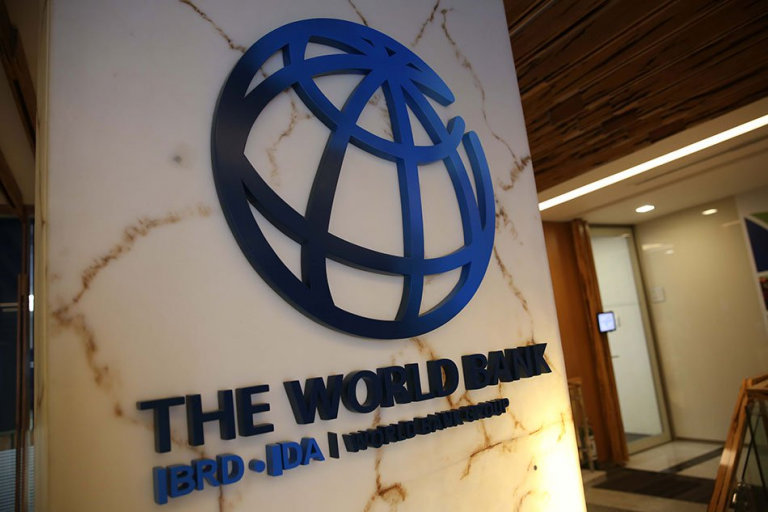
The World Bank has urged the Nigerian government under President Bola Tinubu to adopt four key policy recommendations aimed at reducing the cost of governance and providing much-needed relief to the country’s struggling populace.
These suggestions are detailed in the latest Nigeria Development Update report for October 2024, “Staying the Course: Progress Amid Pressing Challenges.” The report not only assesses Nigeria’s recent economic and social trends but also places these developments within a broader global context.
One of the central themes is the World Bank’s critique of Nigeria’s “weak” efforts to reduce the cost of governance. It points to wasteful spending practices, inefficient management of government-owned entities, and sluggish social protection initiatives as areas in need of reform.
Register for Tekedia Mini-MBA edition 19 (Feb 9 – May 2, 2026): big discounts for early bird.
Tekedia AI in Business Masterclass opens registrations.
Join Tekedia Capital Syndicate and co-invest in great global startups.
Register for Tekedia AI Lab: From Technical Design to Deployment (next edition begins Jan 24 2026).
The World Bank’s recommendations come at a time when inflation—particularly in food prices—has worsened the cost of living for millions of Nigerians. This inflationary trend has significantly outpaced wage growth, leaving households to grapple with an economic squeeze that threatens both short-term well-being and long-term stability.
The report stresses the need for the government to enhance its social protection programs, improve the quality of its development spending, and implement structural changes to reduce unnecessary expenditures.
The World Bank’s Four Policy Recommendations
To help address these issues and bolster ongoing reforms initiated by the Tinubu administration, the World Bank outlined four critical policy areas:
- Cut Wasteful Government Expenditures: The World Bank calls on Nigeria to reduce non-essential spending, such as the excessive purchase of government vehicles and unnecessary external training programs. By cutting back on these wasteful expenditures, the government can redirect funds toward more impactful development projects and social welfare programs.
- Reduce the Cost of Collection for Government-Owned Entities: The World Bank criticized the high costs associated with the collection of revenues by Ministries, Departments, and Agencies (MDAs) and other government-owned entities. It recommends restructuring these processes to improve efficiency, thus freeing up resources that can be used to address pressing economic and social needs.
- Accelerate Targeted Cash Transfers: Recognizing the hardships faced by many Nigerians, the World Bank suggests that the government urgently accelerate the rollout of targeted cash transfers. This recommendation aligns with calls from economic experts for more direct interventions to help vulnerable populations cope with the high cost of living.
- Allocate Savings from Subsidy Removal to Support Social Programs: Following the removal of the Premium Motor Spirit (PMS) subsidy, the World Bank advises the government to use the savings from this policy shift to sustainably expand cash transfer programs and provide well-targeted support. By doing so, the government can ensure that the benefits of subsidy removal reach the broader population and help mitigate the negative impacts of inflation.
In addition to these four policy suggestions, the report emphasizes the importance of strengthening Nigeria’s social protection systems. The current rise in the cost of living, driven by inflation in essential items like food, has left many households in dire straits. The World Bank urges the government to ensure that social safety nets provide comprehensive coverage, adequate benefits, and the flexibility to adapt to economic shocks. The Bretton Woods institute noted that improving the reach and quality of social protection systems is critical to helping Nigerians weather the ongoing economic crisis.
The report also highlights the long-term fiscal challenges Nigeria faces, particularly in terms of rising expenditures. With the government expected to increase capital investments in both physical and human capital, raise the minimum wage, and expand social programs, it is imperative that reforms are sustained to maintain financial stability. The World Bank warns that without better fiscal management, rising expenditures could lead to unsustainable debt levels and hinder economic growth.
Reducing the Cost of Governance
Reducing the cost of governance has been a key topic of public debate in Nigeria, with growing pressure on the government to show restraint in its spending. In August 2024, President Tinubu made headlines for barring unauthorized officials from attending the United Nations General Assembly (UNGA) in New York. This directive came after widespread criticism of the government’s large delegation at the COP28 Climate Summit in Dubai, a decision that many Nigerians saw as an example of wasteful government spending.
However, that gesture was generally considered an eye service, with many pointing to the flamboyant lifestyle of public office holders – funded with public funds, as the real spending issue to be addressed.
The removal of the fuel subsidy and the unification of multiple foreign exchange rates were implemented early from Tinubu’s inauguration, with the intent of addressing longstanding inefficiencies in Nigeria’s economy. However, these measures have led to rapid increases in the cost of fuel—now selling for over N1,000 per liter compared to N198 before the subsidy removal—and a sharp depreciation of the naira, which currently trades above N1,700 per dollar in the parallel market.
Experts have voiced concerns that the economic strain, characterized by rising inflation and a depreciating currency, could trigger civil unrest if not urgently addressed. The warning signs have already manifested in protests and growing public discontent, particularly among those struggling to meet basic needs like food and shelter.



